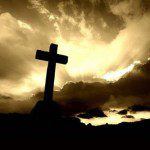In a richly insightful reflection on the public contributions and prospects of black religion scholarship, Gayraud Wilmore’s 1999 essay on “Black Theology at the Turn of the Century” (published in Dwight Hopkins’ Black Faith and Public Talk) outlines several “unmet needs” pertaining to “the future of African American religious thought and praxis.” One of the unmet needs identified by Wilmore is “a renewed contact and bonding with African, Caribbean, and black Latin American churches, mosques, intellectuals and religious leaders” and with the “religiously oriented African Diaspora” in England, the European continent, and elsewhere. “The time is ripe for our church people and theologians to forge new, mutually beneficial relationships with brothers and sisters abroad,” writes Wilmore thirty years after “Black Theology” began coursing its way through black religious thought and practice, and five years after the 1994 democratic transition in South Africa signaled the end of white minority rule on the African continent.
African American religion scholars have made progress toward meeting the challenge outlined by Wilmore, including through African American engagement with such initiatives as the Circle of Concerned African Women Theologians and the Ecumenical Association of Third World Theologians; through transnational collaborative research initiatives by scholars such as Dwight Hopkins, Peter Paris, and others; and through international conversations convened by SSBR in places such as Jamaica, Brazil, and Ontario. Yet, black religion scholars are a long way from fully embracing Professor Wilmore’s challenge, especially as it relates to the kind of engagement of public issues and black popular struggles he calls for in his essay.
Read the rest here















